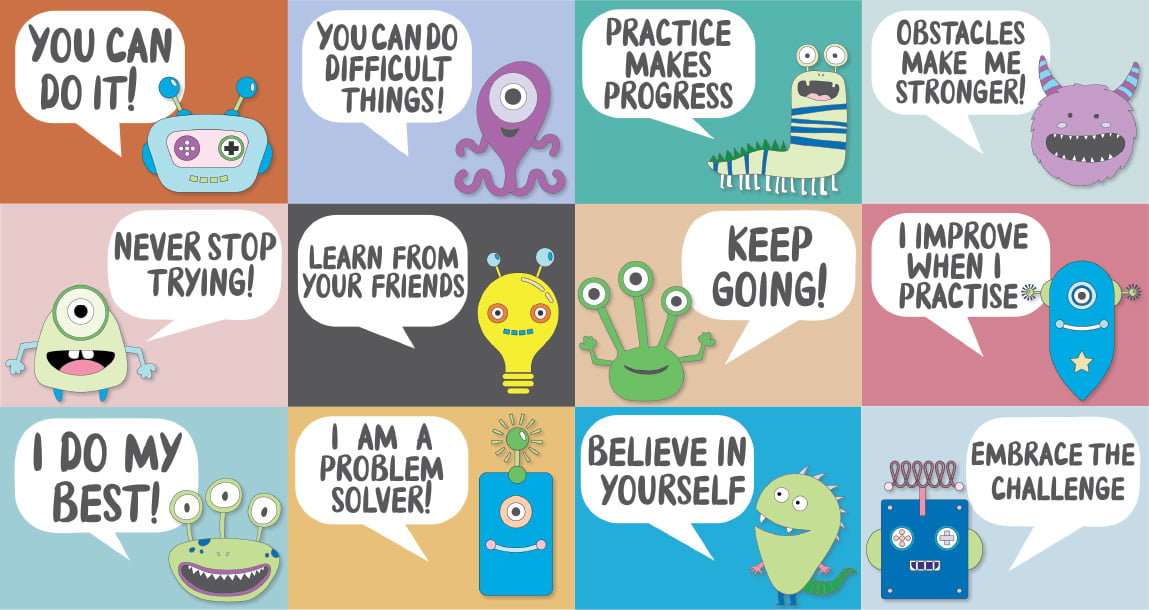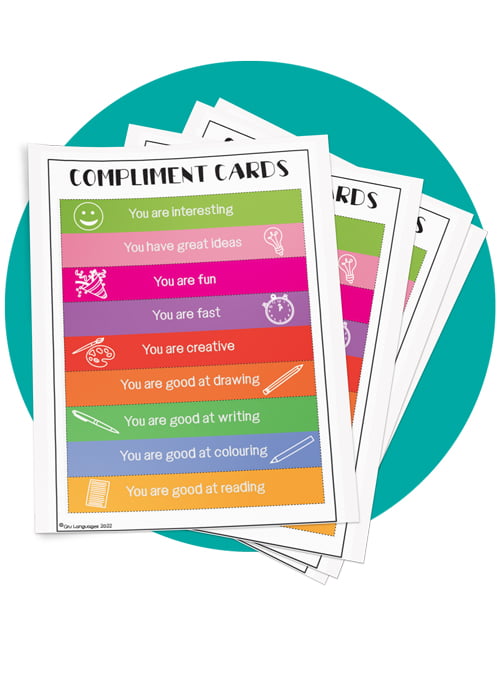How To Help Children Develop a Growth Mindset in the Classroom
By Sarah - January 25, 2023
As teachers, we all want to help our students grow and development into happy and successful adults.
How can we do this?
One way, is by intentionally cultivating a growth mindset approach in the classroom. In this article we’ll first understand what a growth mindset is and on a practical level, we’ll look at some proven strategies for implementing this approach in the classroom.
The idea of a growth mindset first became popular through the work of Stanford psychologist Carol Dweck in her 2006 book “Mindset: The New Psychology of Success.” In her book she claims that a growth mindset is the belief that abilities are malleable. Those with a growth mindset recognise that their abilities are not predetermined and they have the power within themselves to develop and improve. They are open to taking risks, they learn from their mistakes and they are more resilient. They are good problem-solvers and creative thinkers. Those who have a growth mindset view challenges and difficult tasks as opportunities to learn and grow and therefore they are less afraid of failure.
Those with a fixed mindset however, believe that they are born with a fixed set of abilities which cannot change. They can often feel helpless and not in control of their learning. They tend to be more focused on the outcome and can have a deep fear of failure.
Teachers can develop and foster growth mindsets by establishing the right classroom environment. The strategies listed below can be integrated into all areas of your English language lessons.
Set clear and defined goals.
Each lesson, set an obtainable goal and write it on the board.
Going above and beyond this goal, will give your students an additional boost of confidence.
“We aimed for this [______________________], but instead we achieved all of this [______________________] Well done everyone!”

Encourage children to be persistent in achieving their goals.
We all know that when learning a language, repetition, consistency and persistence are the keys to success.
To encourage this, it is important to make it fun!
Games like Dice Games, Battleships, Tic Tac Toe, Dominoes, Board Games, Gap Fills and more… are enjoyable activities which encourage playful repetition which children will want to play again and again!

Use inspirational posters and write encouraging comments on the board.

Encourage children with positive feedback.
Studies have shown that growth mindset feedback is extremely important when introducing difficult and challenging tasks.
For example, you can remind your students of other challenging tasks they did in the past and overcame. You can assure them that practice leads to progress and that you believe they can do it!
Without encouragement like this, students can often feel overwhelmed and demotivated. Presenting tasks in ways which develop a growth mindset means that they become more motivated and more willing to try, even if at first they don’t succeed.
Other ways to provide feedback include putting fun stickers on your students’ work and writing positive messages in their books. These are all great ways of providing growth mindset feedback and promoting a ‘can-do’ attitude!

Acknowledge and praise consistency.
A nice idea is to set homework to watch a short English cartoon every week. Make sure it’s part of a long series. Alternatively you can choose a book and read a chapter each week.
To visually display and reward consistency, points charts and marble jars are a great way to do this.
Look back with your students and notice the difference from the first episode to the 20th or even the 50th :)

Show inspirational videos to reinforce the idea that consistency and persistence is key.
Show the power of consistency in action! Here is an example of a guy who practised table tennis every day for a year.
As a teacher, show how you have persevered and been consistent.
Do you have a hobby that you started as a beginner and now you’re really good? Why not share this story with your students to inspire them. Show them that you too have a positive attitude to learning and a growth mindset.
Encourage enjoying the journey of learning rather than focussing on the outcome.
Make language games and enjoyable activities part of every lesson!

Encourage the idea that your students can do anything they put their minds to.
As mentioned before, having a growth mindset increases motivation. Children are more motivated when they believe that they improve with practice, rather than just believing that they are either good or bad at something.
If you feel as if your students are lacking motivation on a difficult task, is there a way it can be broken down?
Try approaching tasks in different ways. Is there a word they’re having trouble with pronouncing? How can you make it easier to remember?
Instead of simply repeating it, why not try singing it or making it into a chant or pairing the sound with an action.

Challenges are opportunities to grow and learn, there is no such thing as failure.
Celebrate effort over outcome. When you see a child trying hard and persevering, give them a compliment card. This all helps to create a positive and motivating environment.

Encourage reflection and mindfulness.
Spend time at the end of each topic or term reflecting on all the work that you have covered.
Ask questions like…
What do you remember the most? Why is that?
What activity did you enjoy the most?
What did you have trouble learning?
Which activity did you least enjoy?
Can you see any connections?
On a scale of 1 – 10, how did you feel starting this term / topic?
On a scale of 1 – 10, how do you feel now?
What have you learnt about yourself? How did you learn best?
How can you improve going forward?
What would you like to do more of?
What would you like to do less of?
Support each other
Group projects are a great way to encourage collaboration and improve soft skills. Working as a team gives students the opportunity to use their strengths to help others. It also helps them to recognise their weaknesses and find support from others.
And lastly…
Let’s not forget the power of a smile!

What are some strategies which you use in the classroom? Do you have any inspirational stories to share? If so, get in touch today. Send an email to Sarah at sarah@grulanguages.com
